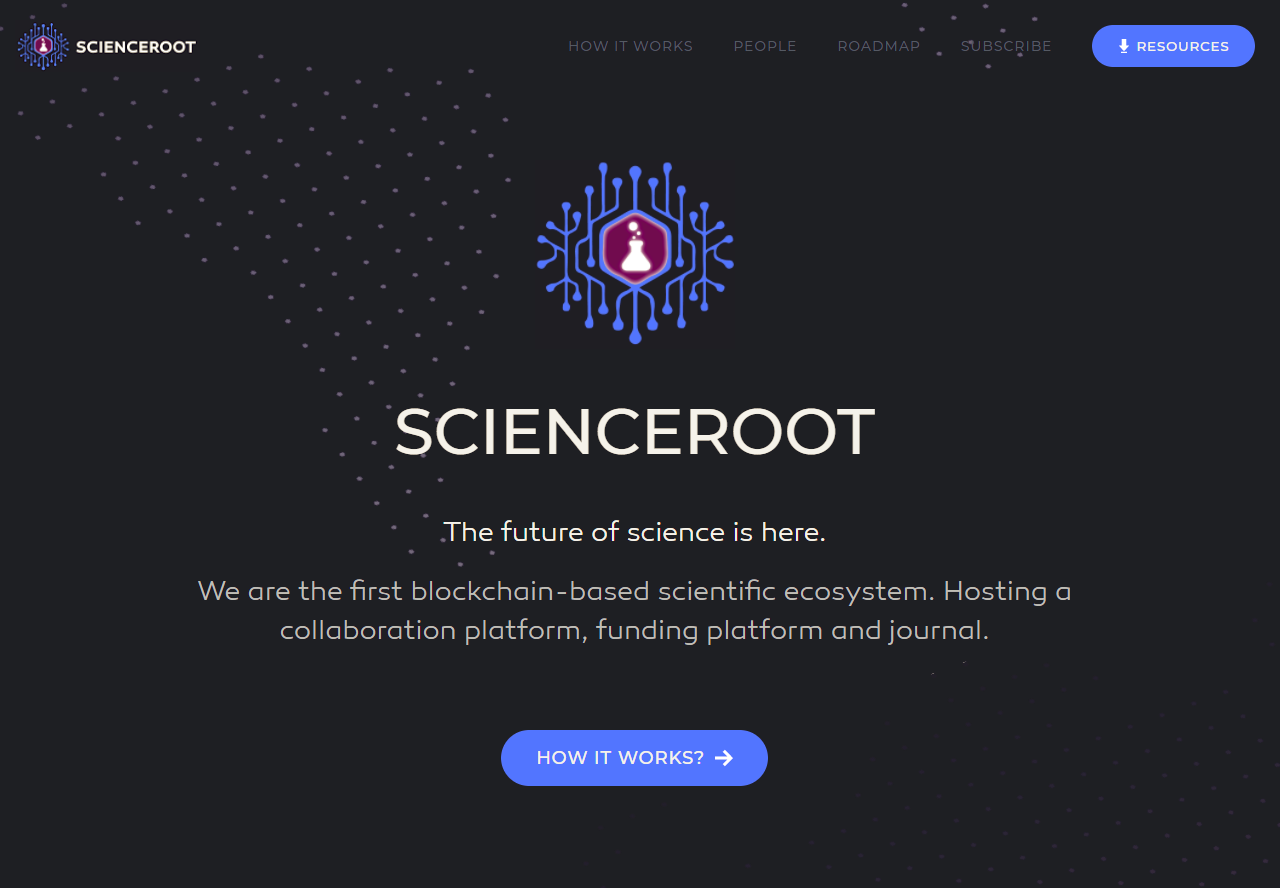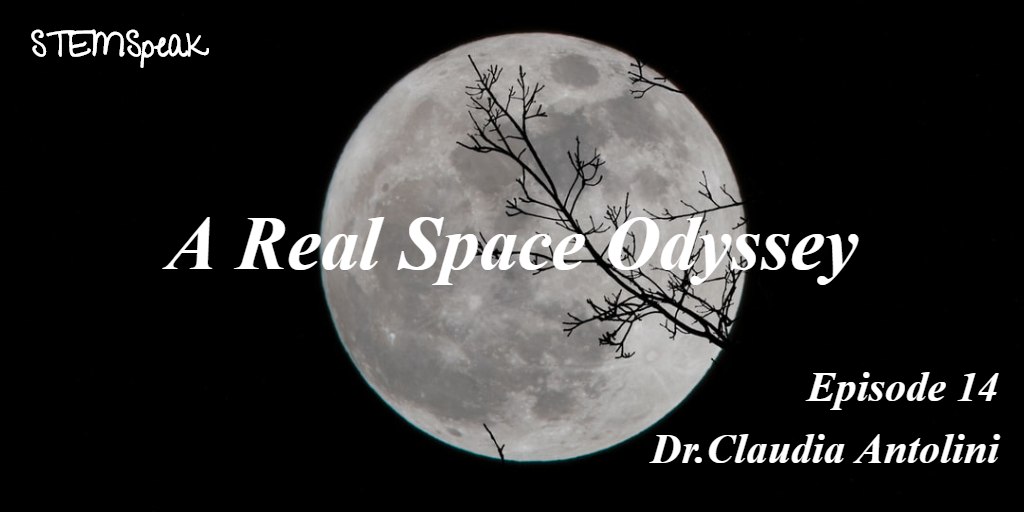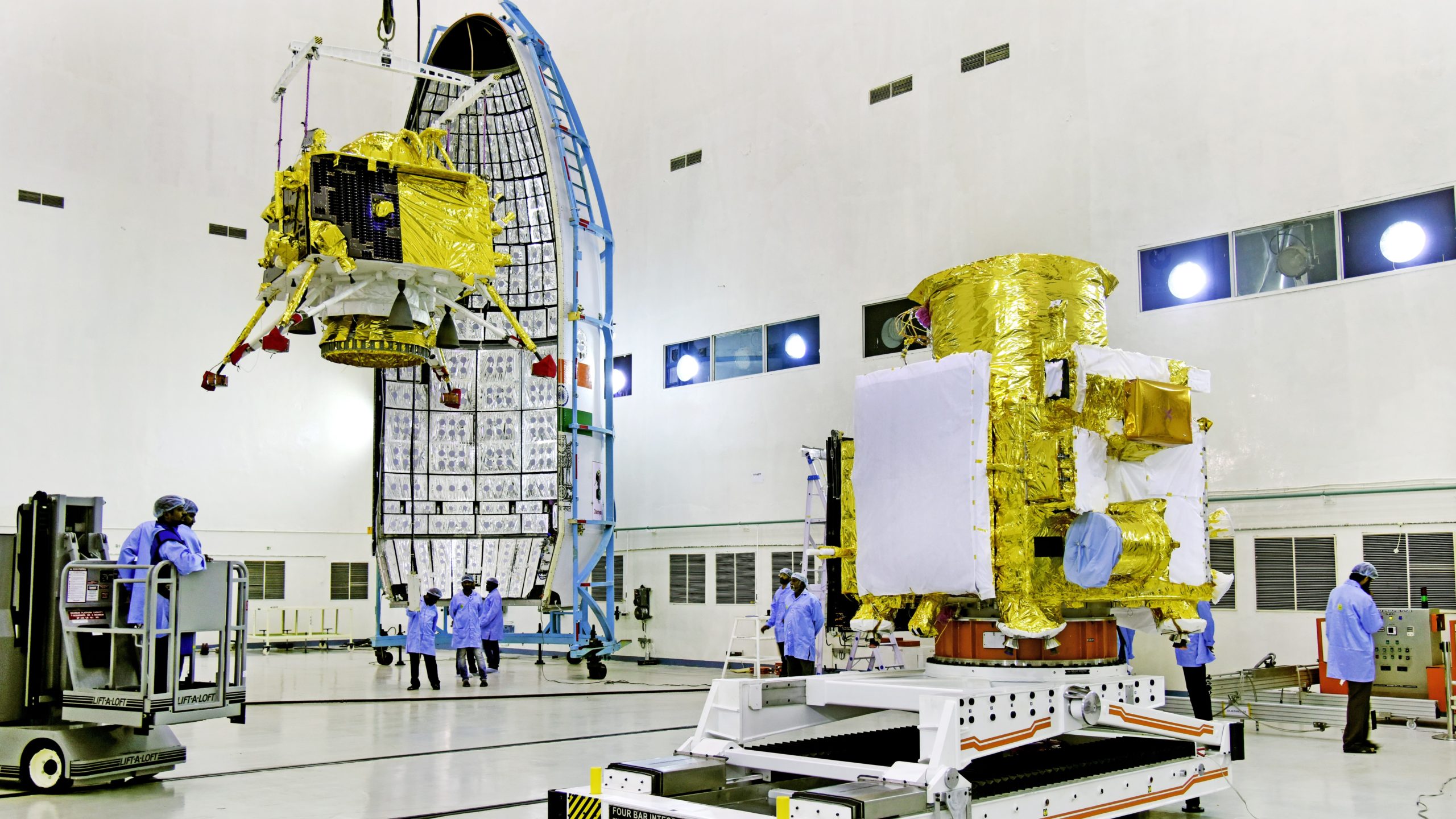In the past few decades “Publish or perish” has become a norm in scientific research. On the other hand, scholarly communication is stunned by commercial publishing companies and so is academia with publishing. Researchers are always under pressure to publish more papers, and more publications mean more earnings for publishers, rather than genuine sciences.
With this scenario, it’s very important to connect the various aspects of scholarly research such as collaboration, funding, and journal to better utilize the available resources and reward the scientists for what they deserve.
Scienceroot is a blockchain-based non-profit scientific ecosystem which combines all the functionalities required during the scientific discovery process.
Can you tell us about your founding team members and what inspired you to build Scienceroot?
Vlad Günther is a Consultant, Engineer and Project Manager with 6 years of experience in Enterprise IT, Finance and Management. He has worked for major companies like Microsoft and Bosch and is experienced in Cloud platforms, VoIP systems, enterprise architecture and Data Security. He is passionate about blockchain and cryptocurrencies and inspired by decentralization.
Alexandru Chirita is a physicist currently finishing his Master studies at the University of Vienna, where he will soon be starting as a Ph.D. student, doing molecular dynamics simulations. Having to work with researchers and being inspired by them, he came up with the idea to use blockchain to help change the current status of the scholarly communication and publishing ways.
After discussing our idea with experts in the field of research and academia we tried applying the game-changing functionalities that blockchain has to offer as best as possible to help transform the current scientific landscape. The result of community feedback and consistent improvement is known today as our platform Scienceroot.
What is the one big PROBLEM you are trying to solve using Blockchain technology?
Unfortunately, there isn`t only one big problem with the current scientific landscape. To name a few: limited access to research outputs (paywalls), centralized companies controlling the knowledge, un-incentivized peer-review, only successful results are published, lack of transparency and accountability, waste of resources and time.
Blockchain will help us build an immutable open access scientific ecosystem where there will be no paywalls, no centralized company controlling the knowledge, peer-reviewers will receive Science Tokens for their work. Even negative results can be published to save other researchers time and resources from pursuing with the same method.
Any submission will be timestamped and identity confirmed with blockchain, so that knowledge theft can be avoided.
Why did you choose collaboration platform, funding platform, and journal as your features and how are you trying to integrate them?
After analyzing the current scientific discovery process, we came up with 3 key elements of the scientific lifecycle that every scientist will go through. We decided to combine them into one ecosystem that covers all their needs and integrate it with blockchain to maximize the functionalities for our users.
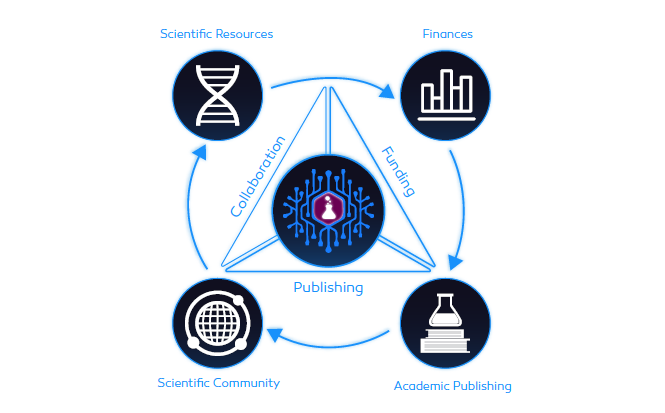
Everything starts out with knowledge assimilation to create an idea, which needs to be discussed with fellow peers in order to be able to expand it. To continue pursuing and researching the idea, funding and equipment are necessary. Lastly, the results need to be made available to the public to disseminate the results of their work.
How different is Scienceroot compared to the traditional scholarly publishing ecosystem?
I would say that one of the biggest differences would be the transparency, incentivizing the authors and referees to push science forward, valuing what is published not where it is published while keeping the knowledge open to everybody.
But we are much more than a traditional publisher, we are combining all the requirements of the scientific discovery process into one ecosystem. This means that our ecosystem components will include Social Media Scientific Network, Archive of all worldwide Grants and a decentralized publishing mechanism.
– Decentralized Scientific Repositories
– Incentivized Q&A
– Decentralized Scientific Marketplace
– Crowdfunding Ideas
– Blockchain Grants
– Funding Mechanisms for Institutions
– Rewarding System for Reviewers and Authors
What is your business model?
Scienceroot`s ecosystem will be non-profit. The purpose of Scienceroot will be solely to promote and sustain science and research. With the help of blockchain, we have the possibility to fund ourselves by processing transactions on our platform and implementing minimal fees in our decentralized marketplace. We will have an Article Processing Charge for our own Journals from which we intend to cover publishing costs and reward reviewers & authors.
New companies or existing journals which want to adhere to blockchain will have the possibility to do this within our ecosystem. For example, established journals will have the possibility to integrate our decentralized publishing framework into their existing business. The only requirement for future partners will be to publish the content open access.
What are the greatest challenges you faced while pursuing the idea of Scienceroot and how did you address them?
One of our greatest challenges is to make the community aware of the problems a lot of academicians are facing. We discussed the problem with field experts, partnered up with key influencers, and will begin raising awareness and attending meetups.
How is Scienceroot funded currently?
Currently, we are mostly self-funded by the Founders, we will continue to apply for different funding schemes to receive a quick boost but our project funding will be raised through an Initial Coin Offering where we will sell Science Tokens to investors.
What things have you learned while acquiring the users from industry and academia? Do you have personalized services for these two sectors?
We noticed that there are a lot of advocates who are pushing for a more transparent and open approach to science. Unfortunately, there are a lot of academicians and researchers that are not aware of the major drawback that the current system has.
Anyways, there is definitely a change going in the direction of open science and new ways of scientific conduct, and we believe that by using blockchain the above-mentioned goals can be achieved.
When we started designing our ecosystem, we tried to take all the things that are wrong into consideration and came up with solutions. For example, removing the waste of resources and time due caused by the fact that negative results not being released, or connect all the functionalities into one open access ecosystem, enabling everyone to access knowledge for free. Furthermore, we want to create a go-to platform where all your requirements to build your idea will be taken care of, so you won`t need to look elsewhere for funding, collaboration or publishing.
How can the blockchain technology impact the open science, open research data sharing scenarios?
Blockchain will help us build an immutable, transparent and decentralized scientific workplace. It is the solution, open science and research data sharing were waiting for because it gives us the possibility to timestamp and lock any submission to your identity. It gives us the means to create a new transparent way of scientific conduct. Researchers could “blockchainify” their progress so that all research steps can be retracted by other groups and put an end to the reproducibility crisis the current publishing system faces. Even negative results can be submitted for the purpose of saving time and resources to other groups.
It will be like a Github for Science where you can fork the ideas from other researchers and continue to work on them without having to worry about identity theft.
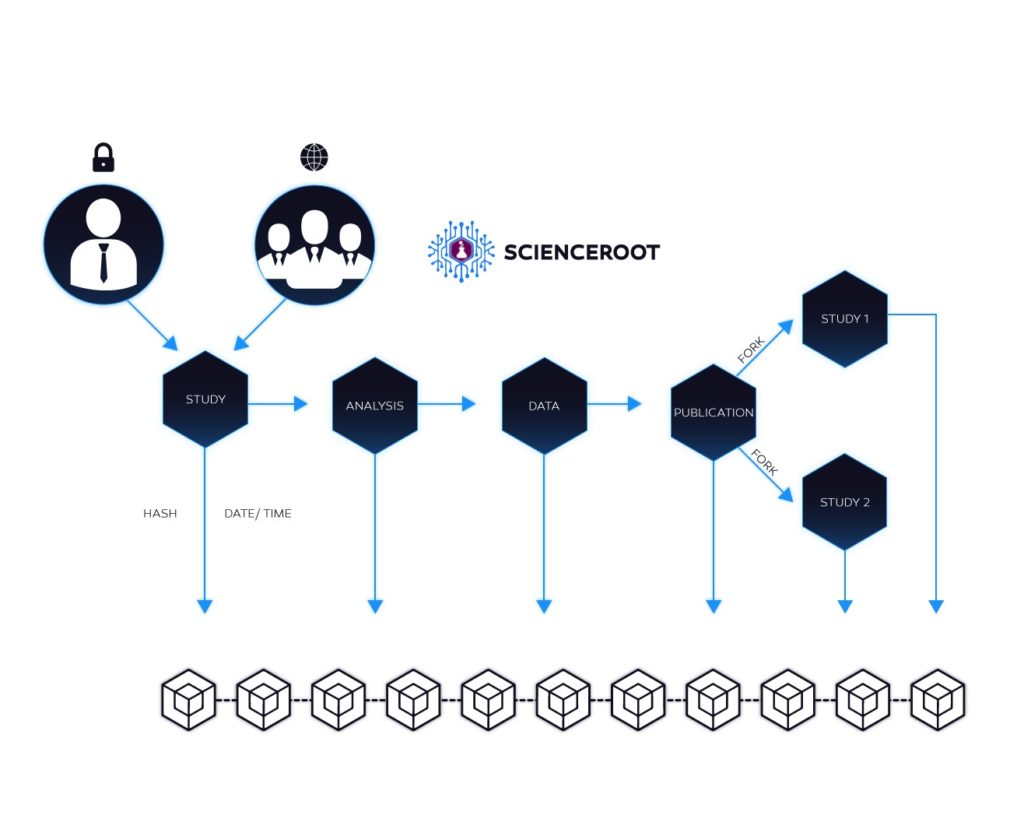
We will implement this functionality in our collaboration platform. When a scientist is working on something new, he will be able to choose whether or not he wants to make the data available to the public.
Blockchain will also make international scientific collaboration much easier. Our ecosystem will incorporate a decentralized scientific marketplace that will allow scientist to market their services and knowledge to the entire world with the help of blockchain as a trusted mechanism.
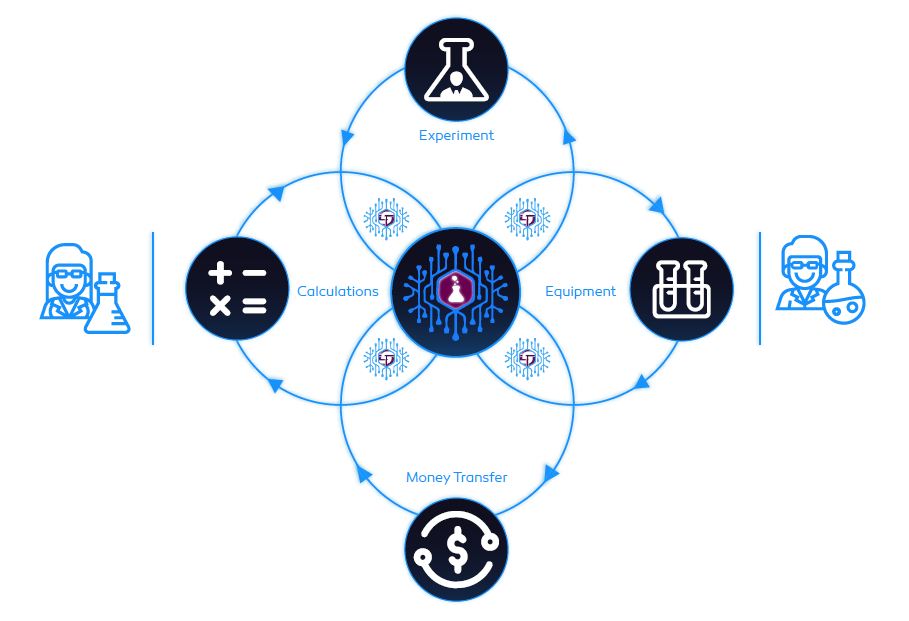
We can remove intermediaries and create a self-governing scientific marketplace using tokens as a payment system. Having a unique currency which can be exchanged regardless of the user’s location, will remove boundaries between people and promote collaboration.
What would be some of challenging tasks to convince the government institutions or research institutes to adopt the platform like yours?
The blockchain is still a very young technology and only now governmental institutions start acknowledging its potential. So far it was linked only with money laundering, drug trafficking, and black marketplaces. As time passed institutions like Linux Foundation, IBM and the European Union noticed the revolutionary functionalities blockchain has to offer and have started to build centers for blockchain research, which will drive adoption of blockchain to new heights.
Creating trust in the blockchain technology would be our greatest challenge, which we will try to solve by offering functionalities and being transparent about everything we do.
We will allow institutions to contribute and participate in our ecosystem, either by marketing their grants, services or equipment to an international audience or by securing our network and gaining compound interest in the form of tokens.
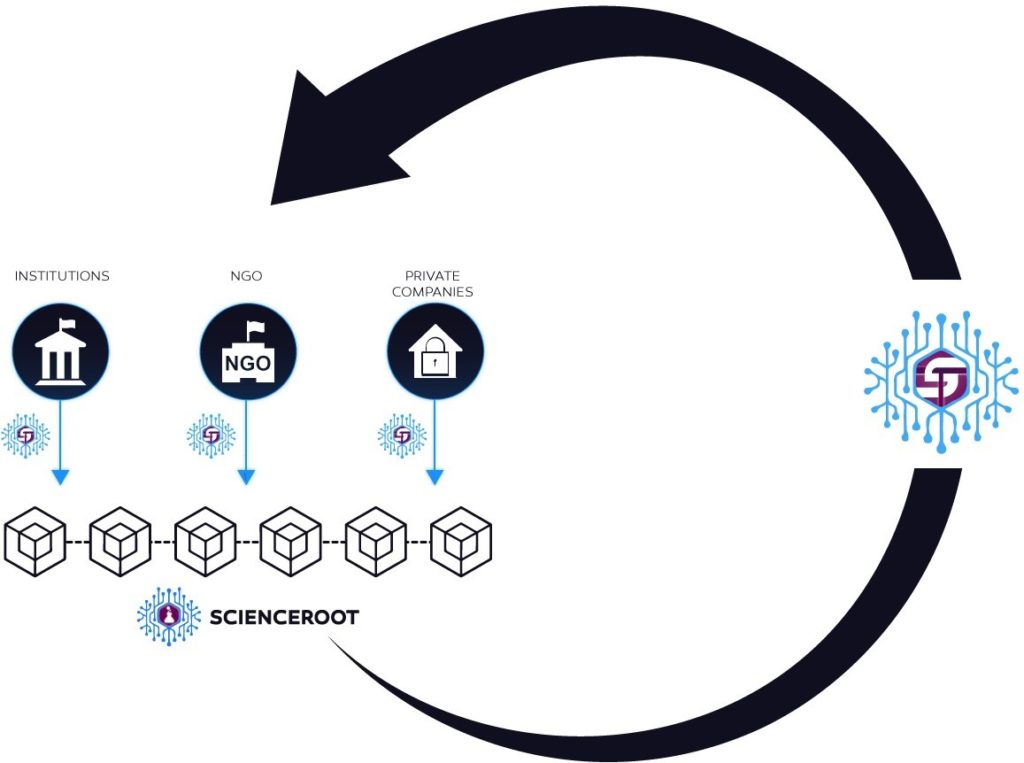
For the latest Science, Tech news and conversations, follow Research Stash on Twitter, Facebook, and subscribe to our YouTube channel
Learn more about Scienceroot
